Biology Careers: What Do Biologists Do?
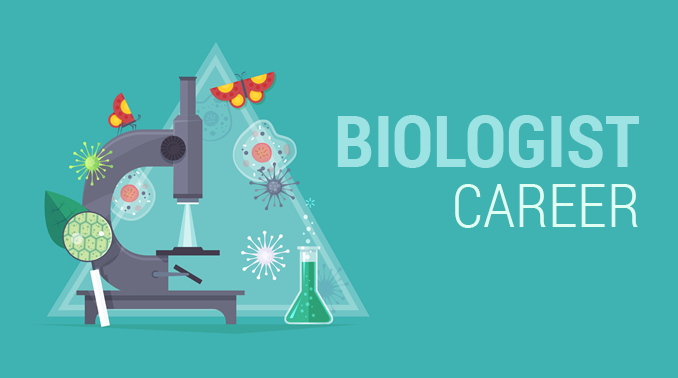
“A biologist career is an exciting field to work in. It’s not only because you’ll have lots of time in the field, but it’s because you are protecting the environment at the same time.”
Whether it’s birds, mammals, fish, wetlands, or habitat restoration…
There are at least 33 branches of biology where a biologist can excel.
Even though it’s a noble occupation, it may not be the easiest path to get your feet on the ground.
| Average Salary | 65,000$ |
| Percent of Earth Science Careers | 13.7% |
| Job Trend | Average |
| Level of Education | Bachelor’s Degree or higher |
| Work Setting | Office, outdoor, or laboratory |
How much do biologists earn?
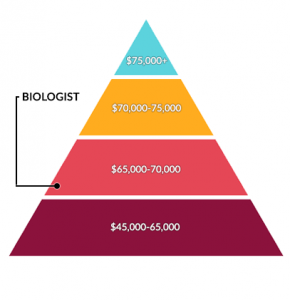
Biologists earn on average about 65,000$. Depending on experience and education, this amount can go up or down. Consulting tends to pay the best but it’s accompanied by most stress and an unbalanced schedule.
Typical employers who hire biologists include:
- Environmental consultants
- Government
- Non-profit organizations
For biology careers, job growth is steady. The outlook is in the normal to positive range. Out of all careers in Earth science, you get to work on a diversity of projects and survey types. And you get paid pretty well doing it.
What do wildlife biologists specialize in?
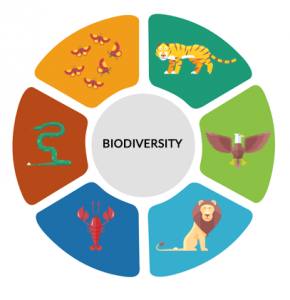
Wildlife biologists ensure operations are within stewardship policies. Here are some of the activities that wildlife biologists undergo:
- BASELINE STUDIES: By establishing baseline studies, they can confirm construction projects limit the risk of endangered animal populations. For example, baseline studies often gather data regarding wildlife populations and/or habitats through observation, recording, and analysis of scientific data.
- AUDIO/VISUAL SURVEYS: Common types of surveys wildlife biologists conduct are audio and visual wildlife surveys during day and/or night. This could include anything from birds, amphibians, reptiles, mammals, and all the classifications of life.
Biologists work closely with ecologists. Ecologists assess population dynamics and how organisms relate to the physical and natural environment.
Where do biologists work?
Biologists work in a variety of settings including in the field, laboratory or office.
You can have long hours in the field. For example, you may spend hours doing a bird migration survey in a remote area wetland. Some weeks you will be working nights doing bat surveys or days of helicopter surveys.
With that said, some biologists have a good balance of time in the field and office. After collecting field data, they write a report on it. Rinse and repeat
Deadlines can be stressful in the world of consulting. But like any job, this can be a common occurrence as a biologist.
What complementary skills are useful for biologists?
If there were two complementary skills to add to your repertoire, they would be Geographic Information Systems (GIS) and statistics.
- GEOGRAPHIC INFORMATION SYSTEMS: Because most survey sites are location-based, this makes the use of GIS very relevant. Each mammal, bird, reptile, and amphibian location have geographic coordinates. Therefore, it makes sense to collect, store, visualize and analyze them in a GIS. For example, if you want to know how far an endangered species is from a construction site, GIS can perform this analysis with ease.
- STATISTICS: Statistics is often a good complement to establishing populations and sample sizes. Although these are not always easy to obtain, your reports become much more meaningful with the use of statistics.
- DATA SCIENCE: Data science is a field focused on the collection and analysis of data to inform decision-making. Data scientists examine which questions need answering and where to find the related data, and then they develop models to answer those questions. A data scientist can use computation and statistics to solve problems in any field, but many specialize in the fields of machine learning, artificial intelligence (AI), or predictive analytics.
What do wetland, marine, and fish biologists specialize in?
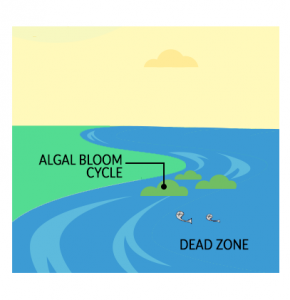
The goal for all these types of biologists is to improve the status of various threatened fish, marine life, or wetlands.
- FISHERIES BIOLOGISTS: Fisheries biologists use specialized sampling techniques to collect fish samples and specimens from rivers and lakes. After they gather the data, they record their findings and submit it in a detailed report. In general, these findings are for management strategies and sustainable fisheries operations.
- WETLAND BIOLOGISTS: On the other hand, wetland biologists relate flora, fauna, and plant to riparian areas, ponds, and wetlands.
- MARINE BIOLOGISTS: Finally, marine biologists tend to work in ocean environments and understand how life in the oceans behaves in their natural habitats.
What level of education is required for biologists?
ENTRY POSITIONS: After graduating college, you’ll likely start a biologist career in an entry position like a wildlife technician. If you’re looking to get promoted, you can increase your chances by earning a Master’s degree or Ph.D. This will also likely increase your pay scale.
EXPERIENCE: Experience goes a long way. It’s important to learn all the ins and outs of a biologist career. Whether it’s new environmental legislation or a new type of government regulation. Expanding your knowledge in this profession is what counts the most to get ahead of the curve.
Biologist careers often require a Bachelor’s Degree. The most common degrees are in:
- Biology
- Ecology
- Environmental studies
- Wildlife management
- Science
Is biology a rewarding field to be in?
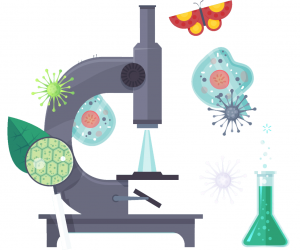
Your search for a biologist career doesn’t stop here. In a biologist career, your job description can vary significantly. For example, there are molecular, vegetation, field, avian, and research biologists who all specialize in something unique.
The path to a biology career can be difficult. Especially once you graduate from college. It’s a rewarding discipline because you protect species at risk and the natural environment.
This in itself makes biologists a hero to environmental stewardship and all living things on the planet.
Biology Careers: What Do Biologists Do?
Biology is a career that offers countless opportunities to explore and learn about the world. Biologists do everything from observing organisms in the wild to studying how they communicate and how they adapt to their environment.
They work in various fields of science, such as ecology, genetics, evolutionary biology, cell biology, and even neuroscience.
But if you just want a feeling of what biologists do, we hope you have achieved that through this guide. Please feel free to ask us any questions in our comment form below.

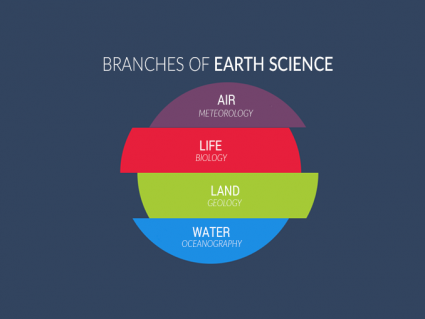
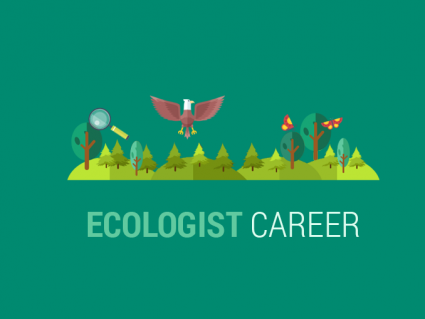
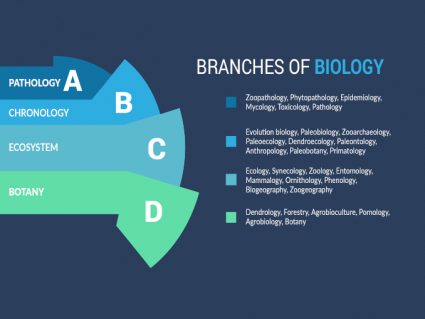
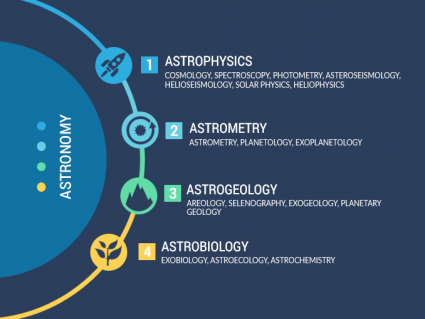
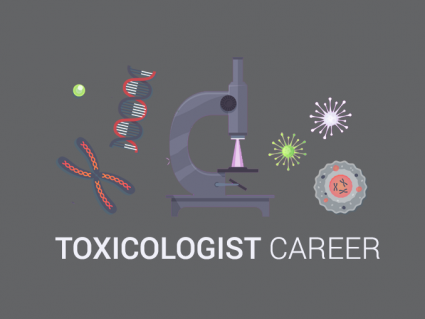

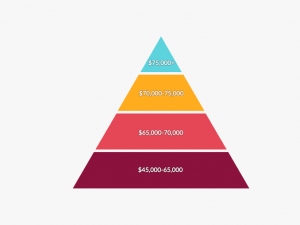


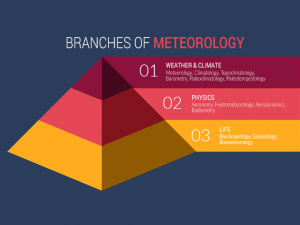

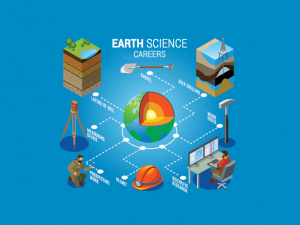


Hey Justin
I appreciate the input, and I agree the outlook for biologists as a career may not be as high as other fields. But it’s still strong. The Bureau of Labor Statistics (BLS) still expects a 5% growth for zoologists and wildlife biologists. Not terrible at all.
https://www.bls.gov/ooh/life-physical-and-social-science/zoologists-and-wildlife-biologists.htm
This is 100% not true and most likely paid for by schools to get you to continue paying them for these almost useless degrees. The market is oversaturated and there are no jobs left in biology that arent grunt work paying 15 an hour. Even doctors are getting 45k to start, not even close to what your spouting. Go for a business degree or engineering, biology doesnt pay at all unless you go the distance… Bachelors are like tp.